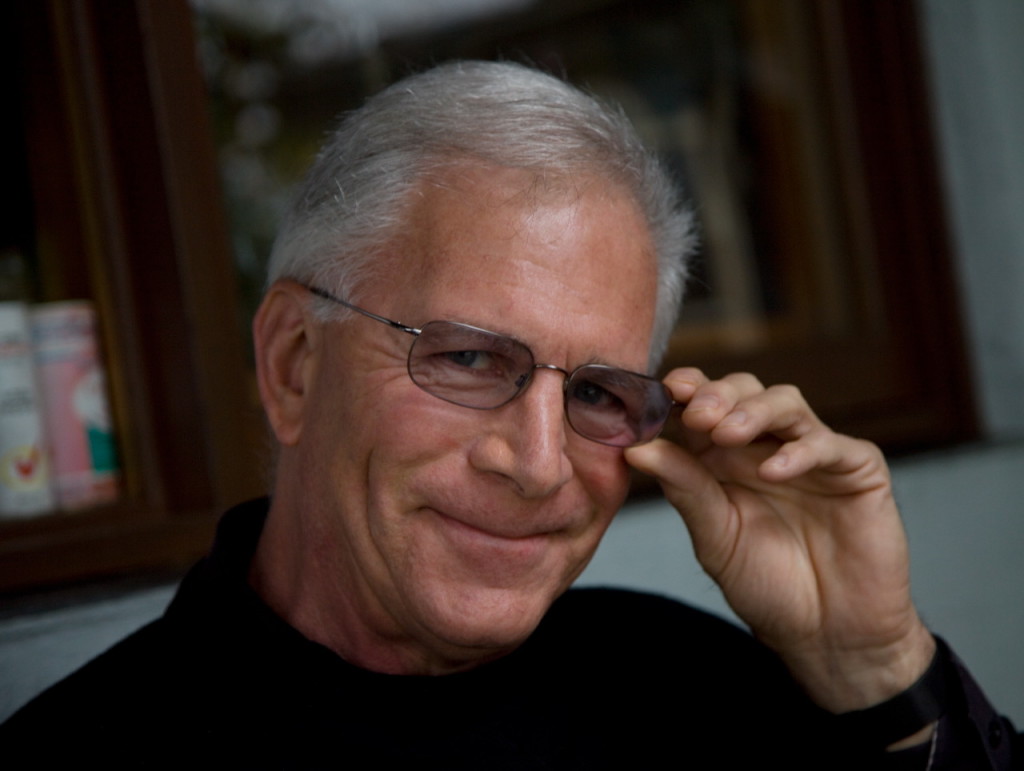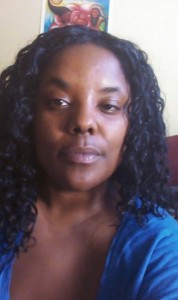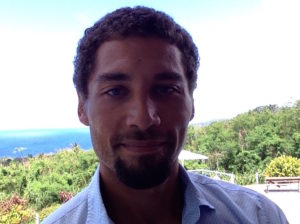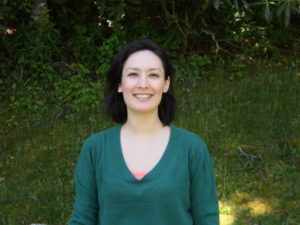
Michael Palmer has lived in San Francisco since 1969. His most recent collections are Active Boundaries (Selected Essays and Talks) (New Directions, 2008), Madman With Broom (selected poems, with Chinese translations by Yunte Huang, Oxford University Press, 2011) and Thread (New Directions 2011). His latest collaboration with the Margaret Jenkins Dance Company, Times Bones, had its San Francisco premiere in April 2014. He has taught at various universities in the United States, Europe and Asia and published translations from a variety of languages, in particular French, Russian and Brazilian Portuguese. A new poetry collection, The Laughter of the Sphinx, will appear from New Directions in the winter of 2015.
Et in Arcadia
It rained frogs.
We were the frogs
and the rain.
As the planets fled their orbits
apples ripened
in the orchards to our north.
We bit into the planets
as if they were apples.
They crackled
between our teeth
and their juices
streamed off our jowls
like syllables from childhood.
Our mad brothers, mad
lovers, mad others
were already gone.
The bees and their hexagons,
their dances, were gone,
the whales and their songs.
Shoeless we walked
across the stellated,
the glowing, irradiated
meadows of glass.
Have you always
had this tremor?
she asked.
Yes.

The youngest of three girls, Jo-Ann Reid was born in Worcester, MA in 1976 after her parents and two sisters emigrated from Haiti two years prior. She has strong memories of reading and singing along to The Magic Orange Tree: and Other Haitian Folk Tales by Diane Wolkstein and hearing the stories of her parents’ lives in Haiti growing up during the Duvalier regime. Language became particularly potent when Jo-Ann studied the works of bell hooks, Audre Lorde, Nikki Giovanni, and Alice Walker or when she listened to musicians like Louis Armstrong, Nina Simone, Billie Holiday, Miriam Makeba, Celia Cruz, as well as all things metal, Michael Jackson and Madonna.
Kitchens are places of celebration, potential danger if not respected, and orderly mess. The work of poetry is comparable in that it is a balance between risk, structure, an open ear and a willingness to sometimes chuck it, accept defeat, and start over. Poetry about social problems, the voiceless & ignored, or exploring cross-cultural identity expectations among other things is stressful. Exploring uneasy questions related to boundaries, gender, economic class, systemic injustice, and race is both challenging and empowering. The necessity to keep at it lies in the imprint of finding one’s voice and letting it evolve. It has to be worth it. What makes it worth it is in the mind and heart of the poet. Silence, whether in truly listening, observing others, or within the pauses between lines on a page or screen is quite powerful. And there is a poetry in that too.
Tea Set
Out the screen door and past her mother’s secretly swelled belly,
she sat determined over clinking metal spoons.
Pressed an old, white, man’s undershirt full of holes
against the dusty things: doll-size chipped gray teacups,
three broken plastic saucers with one missing
chewed up by the neighborhood bully of a dog.
As tea-setter, she poured hot water all around
and rationed out the ginger teabag
to four imaginary girls and one real one
to play the husband back from work
a stick for a cigar held tight between unsteady teeth.
As husband, she puffed imaginary smoke,
wiped sweat from her forehead
and grumbled in her lowest registers
for a dinner made of slippery stones and spearmint leaves.
From the shed she’d struggled with the cracked plastic orange lawn chair,
stolen chipped reading glasses and week-old paper
past her friend’s father, his own belly heaving from the couch.

Ajani Burrell is an English instructor at Northern Marianas College. He lives with his wife and daughter in Saipan, the largest of the Northern Mariana Islands, where his chief leisurely pursuit is hunting coconuts for his kid. He recently completed his first novel, in which two old friends approaching middle age decide to have a baby together, only their platonic attempts to do so fail spectacularly. He is currently pursuing publication and representation for the novel, titled The Here and Now. In the meantime, he is assembling material for a collection of essays about life as a quasi-expatriate on a tropical island in the North Pacific. The subject matter includes epic battles with insects, speculation on his future interactions with his daughter as viewed through a tumultuous relationship with a female stray dog in heat, the Never Never Land like quality of the tropics, and a ‘How to’ Guide (or perhaps more aptly a ‘How Not To’ Guide) for anyone wishing to affect a tropical move of his or her own. He can be reached at ajaniburrell@gmail.com.
Excerpt from “H@!?Y BIRTHDAY” featured in the 2015 Ocean State Review.
Cool air poured out when I opened the door. In the driver’s seat, my wife’s face was ashen, her lips the same faded pink as the house. My nerves jangled and a mild nausea roiled my gut. You okay? I asked. She lanced me with a look that said I should know the answer to that question—a heartening sign. It’s there, she said, staring elsewhere as she pointed at a plastic bag on the floor.
She’d been at the beach near our apartment, in agony. Looking back, the decision seems simultaneously fitting and incongruous. Incongruous because the rocky little beach overlooking Lao Lao Bay is postcard perfect (palm trees leaning towards crystal clear water, darting Trigger and Angel fish, jagged reef demarcating the deep blue of the ocean), and on the day, having suffered what she thought was a miscarriage, the beach seems like the last place anyone would want to go. And yet, if you think you’ve lost a child, if, after going home to make sure your first born was okay with the sitter, and you’re desperate for solitude and just so happen to live just a couple rutted miles from a tranquil, breeze-swept beach, why would you go anywhere else?

Darley Stewart is based in New York City, originally from Los Angeles, California, and works in medical editing. The recipient of a 2015 scholarship for The Ocean State Summer Writing Conference, her fiction and critical essays have appeared in Battersea Review. She has studied philosophy and linguistics at Brandeis University and The University of Edinburgh, and is at work on her first collection of short stories.
Excerpt from “The Story of Dearborn Russell,” in the 2015 Ocean State Review.
What is more intriguing than my drinking habits at the age of seven is a lone undefined spot on the bathroom floor which, as I regularly sit to empty my bowels, assumes so many shapes and forms that I am brought down to my knees, how often these days I find myself (I! Dearborn Russell!) on my knees, for one reason or another — namely to service the distinctly midwestern crop of a range of blonde pubis, platinum to dirty blonde, all cemeteries of the heart initially resemble sunlit cornfields — analyzing it to interpret and report all that at first sight was cloaked from proper view. This undefined stain upon the bathroom floor is akin to the face of a sitter whose portrait is about to be painted, and what is familiar suddenly becomes unfamiliar, ravishing, nearly spiritual. I must be astonished by a great many commonplace things, once I have looked at them with a painter’s eye. The stain upon this bathroom floor is a kind of anatomy. Midcentury formalist anatomy. I could say it in a myriad of ways. I have been searching for the one way to say it that is better than the rest. Within this stain, I see abject discomfort and opulence, the Stieglitz circle, amino acids, the ends of parsnips, and our child. For she had borne our child.
Purchase the 2015 Ocean State Review here: https://oceanstatereview.org/current-issue/
